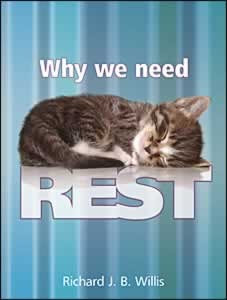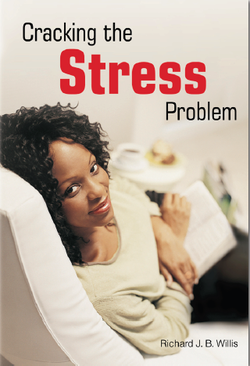|
|
| ||||||||||||||||||
REST
REST
Have you ever stayed up all night studying for a test? Have you ever wondered why our bodies convince us to close our eyes and drift away for 8 hours every night? Why do we sleep? What would happen if we just decided to stop sleeping? How long would we be able to last? The world record for living without sleep is 11 days. Lab rats actually die from sleep deprivation faster than starving to death! Like breathing, eating, and moving, sleep is an instinctual, critical component of our lives that can be carried out in an unhealthy or healthy manner. We’re going to talk about the effects of both. Most, if not all, of us can feel the effects of not getting enough sleep. It hits us hard the next morning like an overindulgent meal—we feel foggy and drained, our memory doesn’t work so well, and we can struggle to carry out even the simplest of tasks. A recently published study reported that if you regularly sleep less than 7 hours each night, your immune system would suffer for it, making you three times more likely to get sick. People with little sleep also tend to be more overweight and have shorter lifespans. Research has actually shown that sleeping less alters the metabolic pathways that regulate appetite, making you feel hungrier as a result. Quality sleep on a regular basis is necessary for a robust immune system.
So how much sleep do we need? It has been shown that for those adults sleeping less than 7 hours, their risk of dying increases by 21% in women and 26% in men.
Have you ever stayed up all night studying for a test? Have you ever wondered why our bodies convince us to close our eyes and drift away for 8 hours every night? Why do we sleep? What would happen if we just decided to stop sleeping? How long would we be able to last? The world record for living without sleep is 11 days. Lab rats actually die from sleep deprivation faster than starving to death! Like breathing, eating, and moving, sleep is an instinctual, critical component of our lives that can be carried out in an unhealthy or healthy manner. We’re going to talk about the effects of both. Most, if not all, of us can feel the effects of not getting enough sleep. It hits us hard the next morning like an overindulgent meal—we feel foggy and drained, our memory doesn’t work so well, and we can struggle to carry out even the simplest of tasks. A recently published study reported that if you regularly sleep less than 7 hours each night, your immune system would suffer for it, making you three times more likely to get sick. People with little sleep also tend to be more overweight and have shorter lifespans. Research has actually shown that sleeping less alters the metabolic pathways that regulate appetite, making you feel hungrier as a result. Quality sleep on a regular basis is necessary for a robust immune system.
So how much sleep do we need? It has been shown that for those adults sleeping less than 7 hours, their risk of dying increases by 21% in women and 26% in men.
- Turn off the lights. Light suppresses the body’s natural release of melatonin.
- Avoid electronic devices. Television viewing, computers, and mobile phone use just before bedtime hinders our natural ability to fall asleep. The sleep that we get before midnight is much more beneficial and can be worth almost twice as much as that after midnight.
- Relax and get comfortable. Drinking a glass of water at this time has been shown to reduce your risk of heart attack that night by 50%–make it part of your routine. Your bedroom should be a sanctuary of calmness and peace.
- Say no to drugs. Sleep aids, such as sleeping pills, should be avoided. They increase your risk of many diseases as well as shorten your lifespan
- Watch what you eat. If your stomach is still churning away, you can imagine why it may be hard to go to sleep and to stay asleep. It is best to eat your lightest meal in the evening and then nothing after that.
- Be thankful. Closing the day by contemplating the day’s blessings and spending time in prayer is another way to get peaceful sleep. Forgive those who you need to and make amends with the people you have wronged.

The Bible recommends regular rest and adequate sleep. Medical science explains why they are fundamental to both physical and mental health. This little book gathers research findings which provide insight and motivation for us to optimise our rest and sleep.

We face stress at every stage of life – from infancy to old age. Stressors change. The stress is different in men and women. Our success in life depends on how we deal with stress. We need to understand what stress is and learn how to cope effectively.
Richard Willis tackles these issues by placing them in context and giving stress management programmes. This practical book is full of charts, exercises, self-evaluation tests and useful techniques that will surely help.
Topics:
Richard Willis tackles these issues by placing them in context and giving stress management programmes. This practical book is full of charts, exercises, self-evaluation tests and useful techniques that will surely help.
Topics:
- The dynamics and costs of stress
- Sensing the danger
- Deep breathing
- Relaxation
- Fears and phobias
- Childhood and adolescent stress
- Symptoms and effects of depression
- Work and ageing stress
- Men/women and stress
